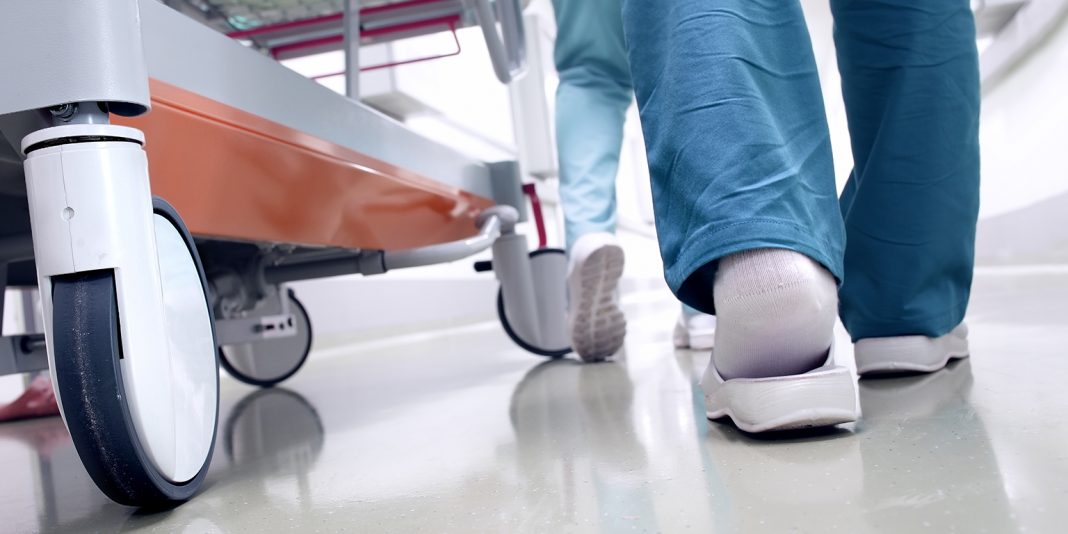Student nurses constantly hear and experience the impacts of nurse understaffing, says National Student Unit chair Phoebe Webster. But that hasn’t put her off her career choice.
The third-year nursing student at Massey University, Wellington, is the current chair representing the 2,860-plus nursing students belonging to the National Student Unit (NSU) of the New Zealand Nurses Organisation (NZNO).
Phoebe says that student nurses not only hear about but experience the pressures created by understaffing. “We experience that as student nurses because you come into a placement and you don’t know who your preceptor for the day is – and nobody knows who your preceptor for the day is,” says Phoebe. “So you are chucked in with somebody and they are stressed because they’ve got a huge patient load and they’ve got this student they have to look after. And because they are stressed, patient care isn’t probably optimal either… “
Phoebe says she has also missed out on clinical placements because of staff sickness and shortages or been warned she would have to stay late on most days as the workload was too high to be completed within normal working hours.
She is also aware that the same issues are likely to arise when entering the workforce as a new graduate, leading to the risk of burnout and nurses leaving the profession.
This is one of the reasons that self-care was a topic in this year’s National Nursing Survey carried out by the unit . It is also one of the reasons Phoebe became involved in NZNO as a student nurse as she wanted to be part of helping to shape the future direction of the profession she is joining. She is also worried about the predicted nursing shortage to come – an important issue for both students and new graduates.
“But I think the mood is generally optimistic amongst my cohort as we are nearly done (graduated).” The immediate concern for most third-year students was whether they would get a job next year. “I don’t know if people are thinking much further away than that, as that’s the first hurdle.”
She says that, apart from that hurdle in front of them, her classmates are “pretty bright-eyed and bushy-tailed” about their choice of profession.
Career choice and chair role through “happy accidents”
Phoebe doesn’t regret the series of “happy accidents” that led her into nursing and her National Student Unit role.
On leaving school, nursing wasn’t even on the horizon and she did a BA at Victoria University in philosophy and religious studies. But on graduation she wasn’t sure what to do next, until an aunt pointed out that her student jobs as a nanny or a caregiver had a consistent theme of being around people, and suggested she consider nursing.
Phoebe filed the idea in the back of her mind and headed off to Europe but then, while living in a van in Germany, she decided to apply. She heard she was successful while in Italy, so returned home to start her nursing training at the age of 24.
“I didn’t really know what I was signing myself up for. But when I got there it all clicked into place and I thought ‘I think I’m doing the right thing’.”
The next happy accident was when a lecturer told Phoebe’s first-year class that she was off for two days to an NZNO gathering at Te Papa and Phoebe decided to check it out herself.
The curious student discovered on arrival that you can’t just roll up to a national conference on the day. However, the woman on the conference desk to whom she chatted just happened to be the National Student Unit administrator, and she suggested that Phoebe contact the current Massey University student rep, who was looking for a successor.
“She gave me the lowdown and it sounded awesome,” said Phoebe. So she put forward her name and in the following January completed her delegate training to become the Massey NSU rep.
Being an NSU rep
Phoebe says the rep role ranges from supporting, recruiting and advocating for students at her own school to reporting and gathering ideas from fellow reps at schools around the country at national meetings.
Student membership of NZNO varies from school to school and is influenced to some extent by whether schools, like her own Massey, offer private indemnity insurance.
“A lot of the time, it [membership] isn’t on a student’s radar – they are just trying to get through their studies and pass their exams,” says Phoebe. “And that’s totally understandable. It’s not real for them yet, being part of an organisation that is helping to shape the workforce they are entering.”
But this year the $40 student membership fee has been dropped for first-year students and Phoebe says that has led to a sizable jump in membership on her campus.
Membership also becomes more relevant as students move through their degrees and start thinking about their working conditions, pay and the professional issues that will matter to them once they are registered. “Then they realise that NZNO is in their corner, fighting for their cause.”
Phoebe’s involvement stepped up late last year when she became the national chair.
Initially worried about the time commitment, she says that NSU members are all told to prioritise their studies and she thinks that as long as unit reps keep up their grades it is definitely a good thing to do and have on their CVs.
The role has meant getting to network and meet with nurses from all over the country and is a rare opportunity as a student to see nursing in its widest context.
At the local level, Phoebe has organised first aid training and visits to the first- and second-year classes to keep them updated about scholarships and grants and encourage them to sign up.
Phoebe’s final clinical placement is in a community mental health team and she intends to apply for a mental health new graduate place through the NESP programme. She will step down from the role of chair at the NSU AGM in September and knuckle down to finishing her degree and job hunting.






















